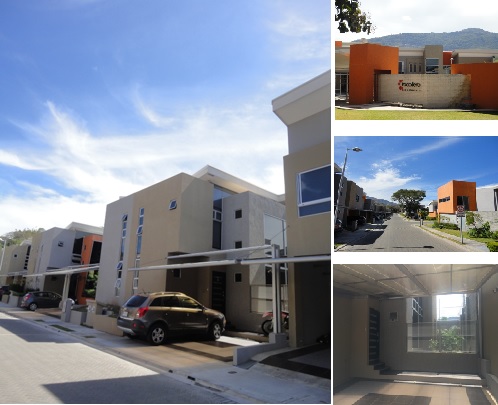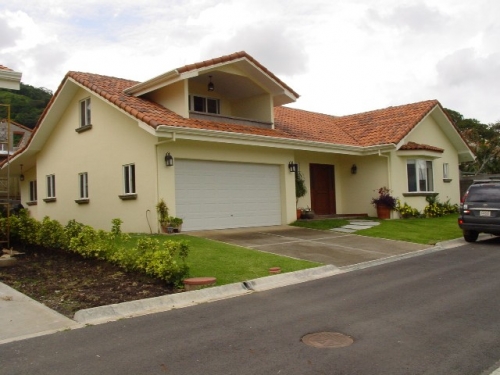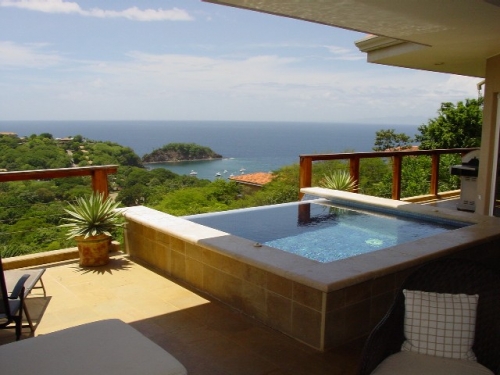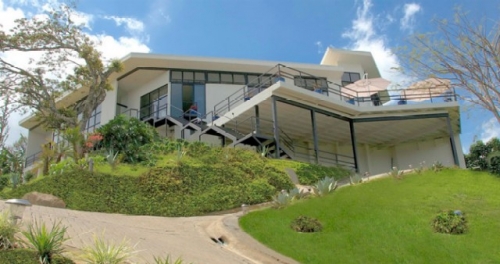Costa Rica Guide
Costa Rica Real Estate
List your property today!
Inclusion of real estate listings at Costa Rica Guide is
absolutely free of charge.
Featured Properties
Costa Rica Guide - Costa Rica Real Estate
Step by Step through the Real Estate Process
What You Need to Do, Pay
By Christine Puleo
The Tico Times
March 17, 1995
After you've found the perfect property and agreed on the price, your work is far from over. Here's a list of steps required to purchase property or build a home, courtesy of lawyer Roger Petersen, author of Legal Guide to Costa Rica.
Purchasing Land or Existing Home
1. Find an Attorney - The attorney plays an important role in real estate sales, including drafting the transfer deed and eventual registration of the sale.
2. Investigate the Property - The lawyer should conduct a search of the property section of the Public Registry (which provides information such as boundary lines, tax appraisals etc.), as well as an independent investigation to ensure clear transfer of title.
3. Draft Transfer Deed – The transfer deed (escritura), drafted by the attorney, shifts ownership from seller to buyer.
4. Pay Closing Costs - Buyer and seller customarily share closing costs. They include:
- Real Estate transfer tax, 3 percent of sale price
- Registration fee, .5 percent of sale price
- Documentary stamps, .5 percent of sale price
- Notary fees, 1.5 percent of for first c1 million of sale price, 1.25 percent on the balance.
- Mortgage registration fees, which vary in cost.
4. Register Transfer Deed - The lawyer now must present and register the transfer deed in the property section of the Public Registry. The deed will be accepted only if accompanied by:
- Documents proving that all taxes and registrations are paid.
- Certification from the Finance Ministry stating that the seller's property taxes are current.
- Certification from the local municipality stating that both buyer and seller are current on municipal taxes.
- Evidence that all prior mortgages, liens, and judgments (if any) have been lifted.
Building a Home
If you wish to build on your land, several more steps are required.
1. Conduct a Preliminary Study, which should be completed before you buy the land.
- Determine if the lot has access to water, drainage, electricity, and telephone services.
- Determine if there are any restrictions on land use. Check with the Ministry of Public Works, Ministry of Health, National Institute of Housing and Development, local municipality, and the Forestry Department.
All applications/or construction permits must be presented by a licensed architect or engineer.
2. Contact an Architect or Civil Engineer - Law requires that all applications for construction permits be presented by an architect or civil engineer licensed by the Costa Rican Association of Engineers and Architects.
3. Request a Construction Permit - File requests through your architect or engineer at the Permit Reception Office, an office with representatives of a variety of offices and services.
Single-family homes over 70 M2 (753.2 ft) must include:
- four copies of construction plans.
- four copies of surveyor's plans.
- two copies of property deed.
- a copy of the architect or engineer's consulting contract.
- approval from the Water and Sewer Institute and the Electricity Service.
4. Request a Building Permit - File the request at the municipality where the house will be built.
Copyright 1995
Note: The above information is not to be used for any other purpose other than private study, research, criticism or review. Thank you.






